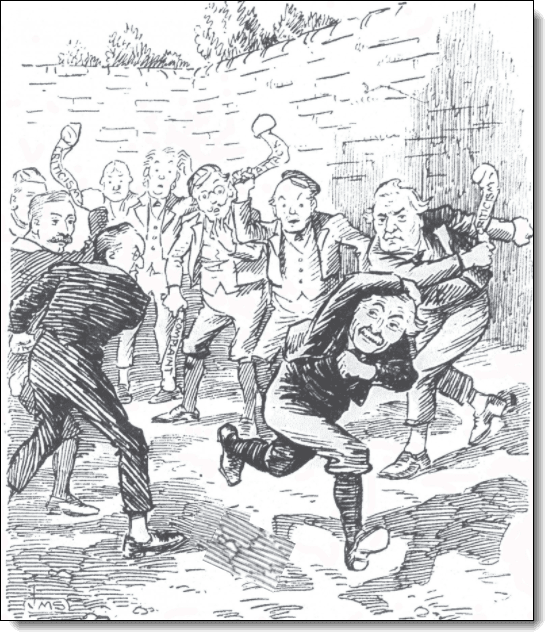In the February 27, 2018 Ask The Headhunter Newsletter, a reader questions how meaningful an employee referral is when it’s impersonal.
Question
A friend at a company I’m interested in working for referred me for a job. I have a phone interview scheduled with a “technical recruiter” later today. I asked if there was any special preparation I could do for the interview. I was told no, that we would be covering my previous experience and projects during the call.
You always recommend using a job interview to demonstrate how the applicant would actually do the job. Since the interview is with a recruiter, not the hiring manager who runs the technical team, I somehow doubt there will be an opportunity to demonstrate I can do the job.
I’m surprised at the way they’re handling this. I already have a strong recommendation from an employee. Why should I talk to a recruiter first? Nobody needs to recruit me — I’ve already been recruited and referred!
[A reader posted a shorter version of this story as a comment on another column. I edited it so it would stand on its own.]
Nick’s Reply
This is a good example of a truly stupid move by an employer. You’re absolutely correct: There is no need for a recruiter to screen you because you’ve already been screened and recruited!
Why do companies even have employee referral programs if they’re going to treat referred job candidates like some unknown applicant?
Employee referral or bureaucratic process?
In fact, the intervention of the recruiter should give people like you pause. This tells you the company’s hiring process is broken. The company can’t tell the difference between random applicants and desirable job candidates — or doesn’t care.
We see another form of such foolishness when a recruiter interviews a random applicant (who was not referred personally), then tells them to go to the company website to fill out a lengthy form about their qualifications. But, what was the point of the interview if not to judge the candidate’s qualifications?
The problem in both cases is that the selection process is thoughtlessly bureaucratic and unduly stretched out after a candidate has already been scrutinized. This redundancy turns off the best candidates and often results in the employer losing them.
The purpose of any recruiting and selection process must be to get good candidates to the hiring manager as quickly and enthusiastically as possible!
(When it doesn’t work that way, it may be prudent to politely decline an employee referral for a job.)
Personal referrals deserve personal attention
I think you’re right to harbor doubts and to question how you’re being treated — and to be concerned that the upcoming interview with the recruiter is not worthy of your time. You won’t be able to show what you can do. Only the hiring manager is qualified to have that kind of exchange with you. Why waste your time?
When an employee makes a personal referral (it should have been made to the actual manager, by the way), the manager should personally jump on it and make the call immediately. The employee, after all, has done the manager a favor, and so have you. The manager should treat this trusted personal referral as a gift. Otherwise, it’s a huge dis to the employee — because why else would they ever make a personal referral again, if it isn’t handled personally by the manager?
Why bother?
We won’t even get into why you’d ever accept a referral from your friend again, if this is how you’re going to be received. The friend has an obligation to make sure the hiring manager welcomes you enthusiastically and gratefully. Unfortunately, employees of companies that have referral programs know they’re usually a bureaucratic nightmare. (For a better way to make a referral, please see Referrals: How to gift someone a job (and why).)
Of course, any job candidate should be thoroughly interviewed and assessed. A personal referral is no guarantee of a job. But it should be a guarantee of the best treatment a company and a manager can offer.
Sheesh, employers are stupid. Then they complain they can’t find good candidates. (See Referrals: How employers waste proven talent.)
My advice is to call your friend the employee and explain you’d be glad to meet with the hiring manager on the friend’s recommendation — “which I really appreciate.” But add that you didn’t apply for the job from off the street, and you’re not going to spend your valuable time getting grilled by a recruiter.
How to Say It:
“Look, I appreciate the personal referral. It was kind of you, and I hope I can return the favor some day. But if the manager isn’t ready to talk with me on your recommendation, then it’s not worth my time, either. I’m glad to invest time to show a manager how I’ll do the technical work properly and profitably. But I don’t have time to chat with a recruiter about my resume. If the manager would like to meet with me, I’m ready for that discussion any time. Thanks again for your faith in me.”
If I were the employee who made the referral, I’d go talk to the manager and suggest the manager make the call promptly. “I’m trying to help you fill a job, but I need you to help preserve the respect this candidate has for me and for our company. I made a personal referral expecting this individual would be treated personally and with care. Is there anything I can do to help move this along?”
Should a personal employee referral be treated personally? What’s your experience been when you’ve been referred for a job? Does your company have an employee referral program? How does it work — and do you participate?


 I’ve been in Human Resources 12 years and I have to say your article
I’ve been in Human Resources 12 years and I have to say your article  My suggestion to most businesses is that they can relieve their HR departments of recruiting, candidate selection and hiring functions without any significant loss. The HR function is Human Resources, not Human Recruiting. (See
My suggestion to most businesses is that they can relieve their HR departments of recruiting, candidate selection and hiring functions without any significant loss. The HR function is Human Resources, not Human Recruiting. (See 
 Question
Question